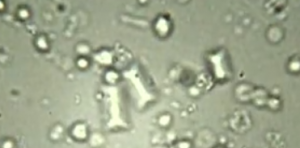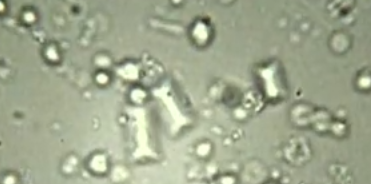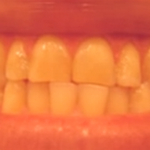Some sediment is commonly find in people’s urine, however whether it is normal or not can only be determined by a close analysis of the type and quantity of the sediment. Usually the sediment comprises of different cells, and solid debris like material which is usually shed from the internal urinary tract. Often people with infections such as UTIs have more sediment in their urine as compared to the ones without the infection. The sediments might also contain bacteria, white blood cells, protein, and leukocytes. Persons with infections have more bacteria content.
Symptoms
- A desperate urge to urinate frequently
- Changes in the color of urine from pale yellow to red, pink or dark brown
- Pain while urinating
- Cloudy or frothy urine
Casts in urine as sediments
Casts refer to cells that are shaped abnormally and their presence in urine is quite normal. The presence of these casts suggests kidney disease and different casts may signify or become prominent in different stages of the disease.
Causes of Sediment in urine
If the kidneys have problem in filtering the particles then the proteins might appear in the urine. The protein in urine is known as Proteinuria. A common protein found in urine is Albumin and the condition is known as Albuminuria where the pee is cloudy looking.
Another cause is kidney problems such as kidney stones and is actually the biggest underlying condition that should be removed at the earliest. Many non-urinary metabolic problems also cause sediment in the urine. It signifies body’s attempt to get rid of those extra through the urinary tract. It could possibly be accompanied by other non-urinary symptoms like indigestion, diarrhea and other changes in the body.
Urinary Tract Infections
The problem isn’t necessarily supposed to be directly related with the urinary tract. Any metabolic condition can make the body to work for removing the extra waste through the urinary tract. This process leads to the unusual appearance of the urine due to the chemical composition of the urine which is different than the normal urine.

Tests to detect sediment in urine
To determine the presence of the abnormal sediments in urine a follow-up is necessary. In case the results are not under the normal range, then the doctors can also go for a routine urinalysis that is carried out at regular intervals. In case the urine sediment is too abnormal, the doctors may even go for a kidney biopsy. This is common among the patients having extremely high levels of urine protein.
It is difficult to determine the cause of the situation by simply taking a look at the symptoms. In order to have a proper diagnosis, there are different urine tests that one can take such as the urine ketone tests. One can also go for the over the counter urine tests like the urine dipstick test which can easily be done at home. In extreme situations one should avoid self medications and look for a qualified medical professional for the correct diagnosis.
Prevention
More than looking for the treatment it is important to be aware of the preventive measures. Urine sediments often occur due to imbalance of protein metabolism, kidney disorders and other biological conditions. It is therefore important to pay attention to the overall health and lifestyle issues. A healthy diet with sufficient exercise is enough to keep such problems away. For instance diet itself can be of a lot of advantage. Reducing the unhealthy fat and protein content in the diet decreases the chances of having sediments in the urine and many other diseases and disorders.
You should choose a diet rich in fresh fruits and vegetables as well as lots of anti-oxidants. It is important as these are the kind of foods that help to remove the toxins from our blood stream and maintain a healthy level of cholesterol which if disturbed can form up along the blood vessels and restrict blood to circulate and lead to a lesser effective circulation. A good blood circulation will not only ensure a healthy heart but a blood system to give you enough nutrients that will further keep your body organs well nourished and functional.


